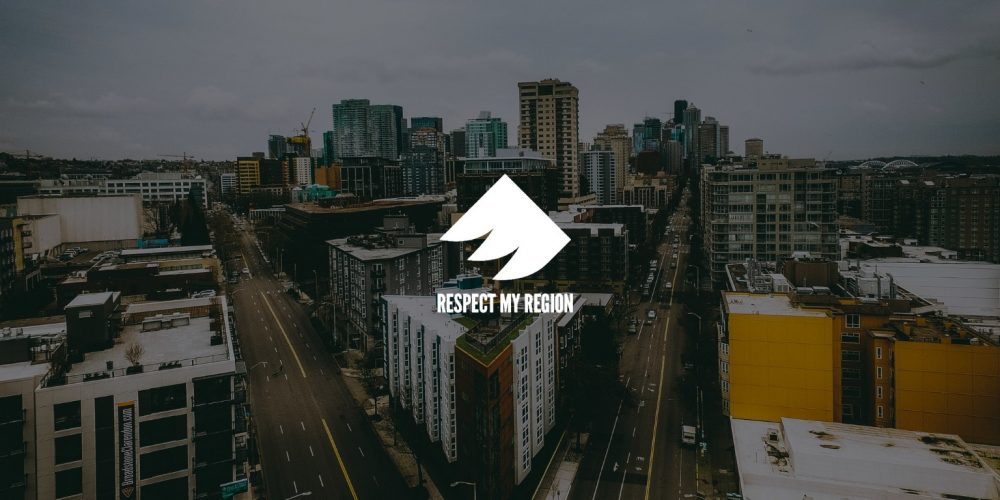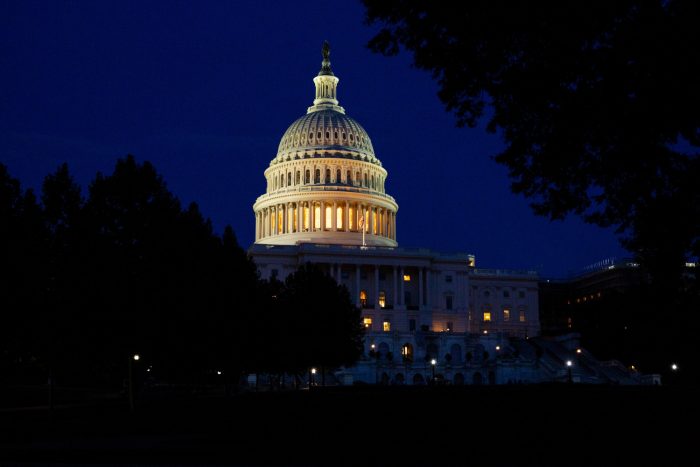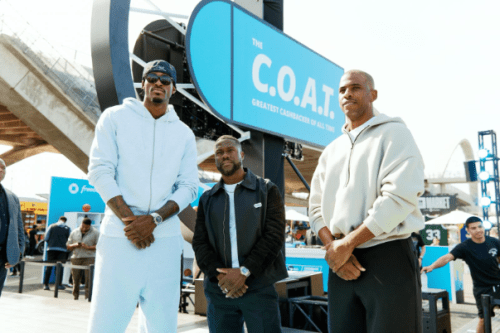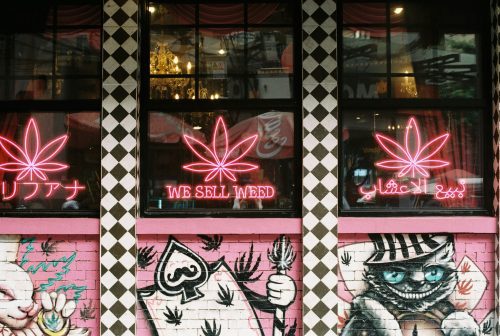Since California first legalized medical marijuana in 1996, other states began to follow suit, and the cannabis industry has been booming ever since. Today, the majority of states in the U.S. have indeed legalized cannabis. Nineteen states, plus Washington DC and Guam, legalized weed recreationally, and a little over a dozen states have since legalized it medically. Additionally, many states are currently in the process of reform and legalization. Going state by state isn’t exactly efficient, though, as it makes for inconsistent laws across the country. Federal legalization would be the most ideal route, but that also takes time and relying on those in charge to make the right decisions.
U.S. Mayors Call Upon President Biden and Congress for Cannabis Reform
Though there are many members of U.S. Congress that are against the legalization of cannabis, and the President himself isn’t exactly known for being a friend of the plant, conversely there are many other politicians that are strongly for marijuana legalization. This also includes members of the U.S. Conference of Mayors who have previously voted to call on President Joe Biden and Congress for cannabis reform.
Mayors across the U.S. are calling on both President Biden and Congress to federally legalize marijuana, expunge past cannabis related convictions, and allow for commercial sales under a model that promotes social and racial equity. It also notes that the U.S. government owns a patent recognizing marijuana’s medical value, as well as factual statistics about criminalizations effects on marginalized races. Furthermore, they’re calling on the government to update all public policies to reflect that cannabis is medicine and can be an effective treatment for a variety of conditions.
The United States Conference of Mayors calls on Congress and President Biden to legalize cannabis commercialization and sales for adults, 21 or older, through an equity-centered framework of fair taxation, diverse licensing types, and regulation that clearly and consistently ensures for a safe, accessible, equitable and sustainable cannabis marketplace.
The United States Conference of Mayors

U.S. Mayors Put an Emphasis on Marginalized Communities
They also put an emphasis on people from communities that have been targeted by prohibition and that are underrepresented when it comes to business ownership in state-legal markets. The government has recognized the effects of the War on Drugs on marginalized individuals, but have “failed to create equitable market participation and leverage the benefits of diversity.” This is largely due to race-neutral qualification standards in certain states and cities around the country.
The organization said, “the government is accountable for remediating all negative impacts of cannabis prohibition through every aspect of cannabis legalization and policy reform, specifically to ensure that communities disproportionately impacted by the prohibition of cannabis are able to benefit from this multi-billion dollar industry.”
They Call for Cannabis to be Removed from DEA’s Controlled Substance List
Furthermore, the U.S. Conference of Mayors is also calling on Congress and President Biden to “remove cannabis, specifically delta-9 tetrahydrocannabinol (delta-9 THC) and its derivatives, from the Drug Enforcement Agency’s list of controlled substances, to end criminal penalties for cannabis possession and use, and to automatically expunge all past cannabis convictions, including resentencing and restoring all rights particularly voting rights.”
Only Three Mayors Opposed
The organization, which includes 1,400 mayors from cities across the U.S. with populations of over 30,000, passed the resolution at their 89th annual Conference of Mayors last month. In fact, only three mayors voted no: Bryan Barnett of Rochester Hills, Michigan; Francis Suarez of Miami, Florida; and Christina Muryn of Findlay, Ohio. So if you run into any of these three out in town, we wouldn’t recommend holding the door for them.
This is a Positive Step to Ending the War on Drugs
The group of mayors said that the proposals would represent a “first step towards ending the failed ‘War on Drugs,’ repairing the multi-generational harm on U.S. citizens, particularly Black, Indigenous and Latino/a/x communities, and preventing further harm caused by collateral consequences of criminalization and intentional barriers to access the rapidly developing legalized market.”
[The cannabis industry] is likely to become a global multi-trillion dollar industry, with early U.S. sales already generating billions of dollars.
The U.S. Conference of Mayors
Celebrities Also Call on Biden for Cannabis Reform
Mayors aren’t the only people calling on President Joe Biden for reform, however. A group consisting over over 150 celebrities, athletes, politicians, academics, and law enforcement professionals have also signed a letter urging Biden to issue a “full, complete and unconditional pardon to all persons subject to federal criminal or civil enforcement on the basis of non-violent marijuana offenses.”
The two-page letter is signed by 23 pages of names including Drake, Ty Dolla $ign, Tory Lanez, 2 Chainz, Kodak Black, as well as many more. With just a quick glance at the list of signatories, it is clear that musicians, and even more specifically, rappers, make up a majority of the cannabis advocates. Many sports players including Al Harrington also signed the letter.
The Letter Addresses the Effects of the War on Drugs
The letter states that the War on Drugs “has crushed many souls and countless futures, while spreading intolerable levels of mistrust and dysfunction between minority communities and those sworn to protect them.” It continues, “The harms of incarceration are obvious, but the pains of federal marijuana convictions transcend prison walls, making it more difficult for someone to get a job, access affordable housing, and receive an education. A conviction can forever limit an individual’s constitutional rights and can put the American dream further out of reach for an entire family.”
“Relief from the federal war on marijuana would not only be just, it would also be good policy by advancing public safety and economic prosperity. A general pardon poses a low risk to the American public by expunging records and releasing the last remaining prisoners of federal marijuana prohibition. Those who will have their sentences commuted comprise a small percentage of the federal prison population and are indeed incarcerated only for non-violent marijuana offenses. All other beneficiaries of a categorical pardon represent an even lower risk, since these people are already living peacefully among their neighbors.”
The Letter is Backed by Those Personally Affected
This letter has been coordinated by civil rights activist Weldon Angelos, who had previously received a pardon by then-President Trump for his own cannabis conviction; a penalty that consequently costed him 13 years in prison. Since his release he has committed to advocating for criminal justice reform, especially cannabis reform.
Atlanta rapper Ralo is also amongst the signers, as he serves an eight-year sentence for a non-violent marijuana offense. He is among many of the non-violent offenders that the group is certainly advocating for. Ralo thanked the community stating, “thank you for supporting my clemency because it’s just not right that corporations are allowed to violate federal law and become millionaires while people like myself go to prison for years.” He also hopes that “Joe Biden will honor his campaign promise and grant us clemency, without delay, so that we can return home to our families and communities.”
In conclusion, the letter leaves off stating, “By your act of constitutional grace, a general clemency will send a clear and powerful message that our country is truly taking a new course on criminal justice policy and practice. Thank you for your leadership in reforming criminal justice and advancing public safety in America today.”
This Comes As States, Companies, and Society Actively Work Towards Cannabis Reform and Acceptance
This comes about while various states across the country are presently working on expunging cannabis convictions for eligible offenders. Meanwhile, many companies are no longer testing employees for marijuana, and some are even seeking weed smokers. Additionally, this comes at a time where the DEA, a federal agency, is requesting more cannabis than ever for research purposes.
With the commotion of cannabis advocates around the country, and even the world, every day we are indeed getting closer and closer to federal legalization and criminal justice reform.
White House Press Secretary Jen Psaki stated during a recent press conference that Biden is “exploring multiple avenues to provide relief to certain nonviolent drug offenders, including through the use of his clemency power.” She also said that the administration is “working hard every day to reform our justice system in order to strengthen families, boost our economy, give people a chance at a better future… As part of this, the president is deeply committed to reducing incarceration as well as helping people successfully reenter society. And he has said too many people are incarcerated—too many are black and brown.”
List of Entertainment Signatories for “Pardon for Federal Marijuana Offenders” Letter
Music
Sports
Film & Fashion
- Drake
- Killer Mike
- Tory Lanez
- Ty Dolla $ign
- T.I.
- 2 Chainz
- Baby Bash
- Dame Dash
- Dante Thomas
- Dave East
- Freeway
- Gunna
- Jackboy
- John Forté
- Kodak Black
- Lil Baby
- Lil Yachty
- Mutulu “M-1” Olugbala
- Loon
- Meek Mill
- Russ
- Mopreme Shakur
- Jason Flom
- Pierre “Pee” Thomas
- Quavo
- Stalley
- Stevie J
- Tee Grizzley
- E.D.I. Mean
- Young Noble
- Waka Flocka Flame
- Young Buck
- Young Scooter
- Deion Sanders
- Kevin Garnett
- Badou Jack
- Al Harrington
- Stephen Jackson
- Julio Jones
- J.R. Smith
- John Wall
- Keone Kela
- Brad Furman
- Louis Lombardi
- Jeremy Meeks
- Marc Levin
- Michael “Big Hollis” Goldstein
Learn Further About the Current Legalization Status in 8 U.S. States
More Cannabis Content
RESPECT MY REGION’S FIRST-EVER NORTH AMERICAN WEED TOUR HAS OFFICIALLY BEGUN!
8 BEST CANNABIS FRIENDLY TRAVEL DESTINATIONS WITHIN THE US DURING 2021
CANNABIS FOR THE CASINO: THE BEST LAS VEGAS WEED PRODUCTS AS WELL AS STRAINS FOR TOURISTS
IMPORTANT THINGS TO KNOW ABOUT LEGAL WEED IN FLORIDA
HOW TO ORDER WEED FOR PICKUP AND DELIVERY DURING A VISIT TO WASHINGTON DC








